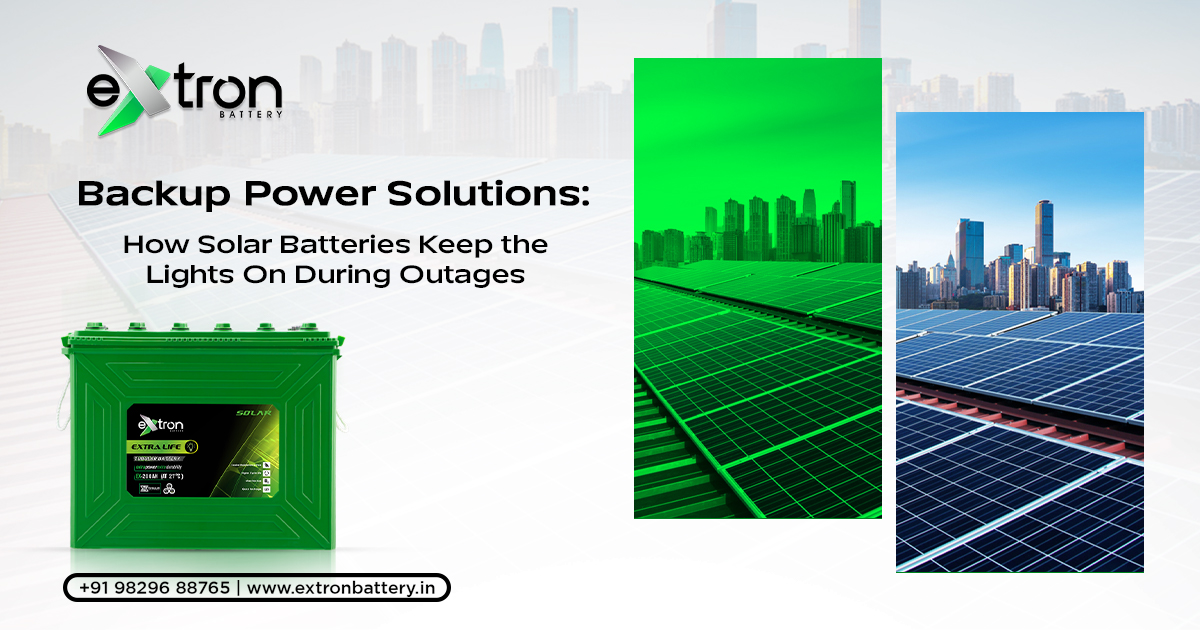India, with its rapidly growing population and economy, faces several energy-related challenges. Also, India is heavily dependent on imported fossil fuels to meet its energy needs. Solar energy reduces this dependence, enhancing energy security by utilizing an abundant energy source. India is now the world’s largest populated country and we should be concerned about its contributions to greenhouse gas emissions. Solar energy, being a clean and renewable energy source, helps reduce carbon emissions and mitigate the impacts of climate change. As we know many rural areas in India still lack access to reliable electricity. Solar energy can play a crucial role in rural electrification, providing power to remote areas that are not connected to the grid.
In the dynamic landscape of renewable energy, certain aspects distinguish a Solar Battery Manufacturer as a pioneer that reshapes the future of sustainable power solutions with innovative products. Extron is one such brand amongst the top Solar Battery Manufacturers. Leveraging cutting-edge technology, Extron’s solar batteries are designed to deliver unparalleled performance, efficiency, and reliability, making them a game-changer in the field of renewable energy storage. Let’s delve into the revolutionary features that set Extron apart in the realm of solar battery manufacturing:
Advanced Battery Technology: Advanced battery technology enables efficient energy storage for renewable sources, such as solar and wind, ensuring stable power supply.
Modular Design for Scalability: Extron’s solar batteries feature a modular design, allowing for easy scalability. Whether for residential, commercial, or industrial applications, Extron batteries can be seamlessly expanded to meet the evolving energy storage needs of consumers.
Seamless Integration with Solar PV Systems: Seamless integration with solar PV systems benefits customers by increasing energy efficiency, providing energy independence, saving costs, offering environmental benefits, increasing home value, and providing reliability during power outages. Extron’s solar batteries are designed for seamless integration with solar PV systems. This integration allows for the efficient storage of excess solar energy generated during the day for use during peak demand periods or at night, reducing reliance on the grid.
Enhanced Safety Features: Enhanced safety features are needed for solar batteries to mitigate potential risks such as overheating, fire, and electrical hazards. These features can include temperature sensors, short circuit protection, overcharge protection, and built-in fire suppression systems. Ensuring the safety of solar batteries is crucial to protect property, people, and the environment. Extron prioritizes safety, and its solar batteries are equipped with advanced safety features, including overcharge protection, over-discharge protection, short circuit protection, and temperature control, ensuring safe and reliable operation.
Long Warranty Period: Extron stands behind the quality and reliability of its solar batteries, offering a long warranty period. This commitment to quality assurance gives consumers peace of mind and confidence in their investment. With Extron, put your step towards creating a greener future!
With Extron, put your step towards creating a greener future!



